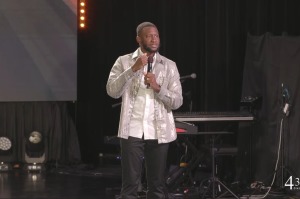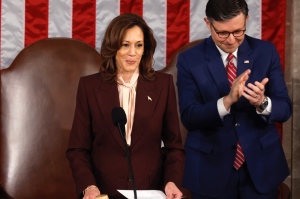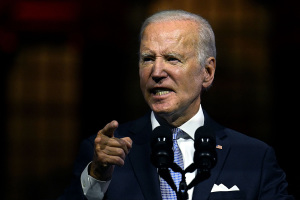'Inevitability of Same-Sex Marriage' Is a Choice We Can Reject
A new Pew opinion poll shows that a majority of Americans believe the redefinition of marriage is "inevitable."
We've heard "inevitable" language before, particularly from statists of all stripes. History is filled with supposedly "inevitable" causes that turned out not to be so.
So, too, on marriage. Consider some facts about the polls that matter most: elections. Citizens have gone to the polls to vote about marriage in 35 states. The truth about marriage has prevailed 32 of those 35 times. In only three states have citizens voted to redefine marriage-all in the 2012 election-and in each state the truth about marriage far outperformed the Republican presidential candidate. For example, in liberal Maryland, Mitt Romney received 36 percent of the vote, while marriage received 48 percent.
All this in a campaign in which proponents of redefinition had a 4:1 financial advantage and the backing of national figures: President Obama, Vice President Biden, governors, and a host of business, sports, and entertainment leaders.
Just last week, citizens in deep-blue Illinois prevented their legislature from voting to redefine marriage-and they did this despite a Democratic supermajority in the statehouse-and despite President Obama, Governor Pat Quinn (D), and Chicago Mayor Rahm Emanuel (D) all urging passage of the bill.
And just last year at this time, marriage won in a landslide-61 percent to 39 percent-in a referendum in the swing state of North Carolina, a state Obama had carried in 2008 and lost narrowly in 2012.
Still, no one can deny that Americans' support for marriage is not what it once was. This is largely because we have done an insufficient job of explaining what marriage is, why marriage matters, and what the consequences will be if we redefine marriage.
To fill this void, we are working with our allies at the Alliance Defending Freedom, the Family Research Council, and the National Organization for Marriage to produce an easy to read pamphlet to explain why marriage matters in everyday language. Download a free e-book version today at TheMarriageFacts.com.
Marriage is founded on the anthropological truth that men and women are different and complementary, the biological fact that the union of a man and woman also creates new life, and the social reality that children need a mom and a dad.
For decades, social science has shown that children tend to do best when reared by their married mother and father. Government recognizes marriage because it is an institution that benefits society in a way that no other relationship does.
Marriage is society's least restrictive means to ensure the well-being of future citizens. It protects children by incentivizing adults to commit to each other and take responsibility for their children.
All the polls in the world cannot undo the truth about marriage. But they can obscure the truth and make it less likely that men and women commit to each other permanently and exclusively. This in turn reduces the odds that children will know the love and care of their married mothers and fathers.
Whatever pollsters and pundits may tell us about "inevitability," the only way to guarantee a political loss is to sit idly by. We should frame our message, strengthen coalitions, devise strategies, and bear witness.
Witness to the truth matters for its own sake. And persistent, winsome witness also tends to produce good fruit, even if it takes, as in the pro-life cause, 40 years and counting. In this struggle to preserve marriage, we need to take that long view-one that doesn't look to immediate wins or losses but decades-long paradigm shifts that reshape how Americans think about marriage.
If those on the left really believed that the redefinition of marriage was "inevitable," they wouldn't be asking the Supreme Court to do their bidding-they would respect the democratic process. Laws that reflect the truth about marriage are constitutional. And the Court should respect the constitutional authority of citizens and their elected officials to make marriage policy-not issue an activist ruling redefining marriage by judicial fiat.
A careful look at the polls reveals complex and dynamic trends. But how those polls change will depend on human choice, not blind historical forces. The question is not what will happen but what we should do.
After all, there's no such thing as being on the "right" or "wrong" side of history. There's only being on the right or wrong side of truth.





























